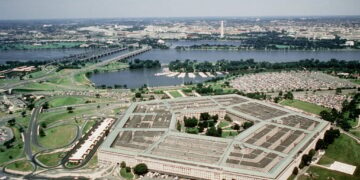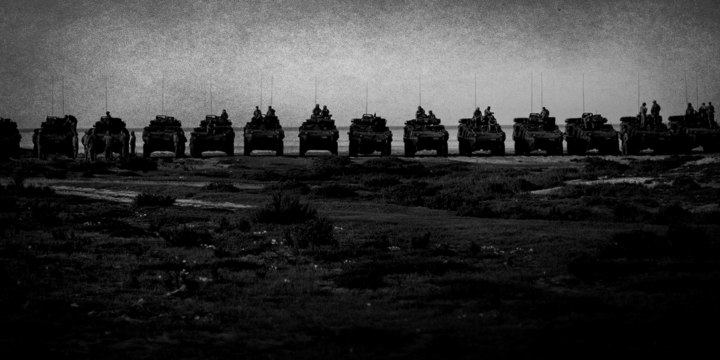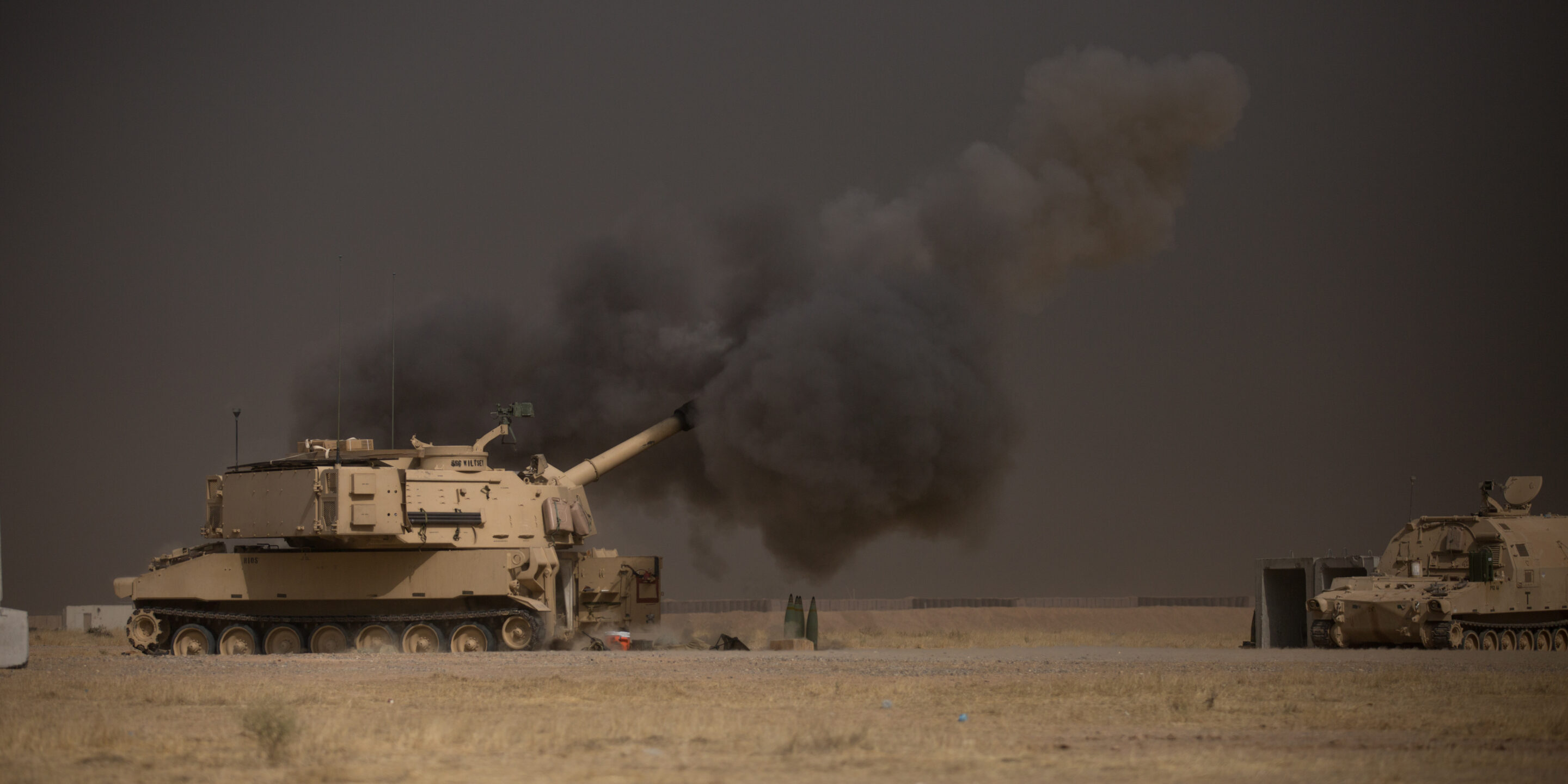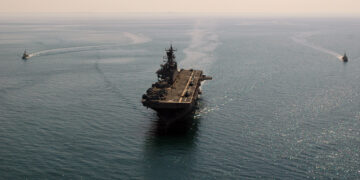“Maximum pressure” is an escalation strategy that courts war with Iran
- Maximum pressure has weakened Iran by strangling its economy, extracting more than the nearly $50 billion returned to it under the JCPOA. But rather than moderate its behavior, as promised, pressure has resulted in a desperate, belligerent Iran.
- U.S. demands on Iran—end its nuclear program, give up its missiles, and sever ties to its regional proxies—are viewed in Tehran as akin to unilateral disarmament, which would leave Iran vulnerable to attacks and regime change.
- Left with no option but surrender, Iran has increasingly lashed out through direct and proxy attacks and restarted its nuclear weapons program. Pressure has already escalated to direct U.S.-Iran conflict, and continued miscalculation could bring war.
- Maximum pressure is an escalation strategy that courts war with Iran—it has failed and should end. Crises are a feature, not a bug, for proponents of this approach and are materializing with increased frequency and consequence.
- While the Trump administration remains committed to maximum pressure, the U.S. can reduce the risks of war by withdrawing its small troop contingents—vulnerable to Iranian reprisals—from Iraq, Syria, and the broader region.
A military conflict would be long, costly, and likely unwinnable without a ground invasion of Iran
- Iran is conventionally weak, but it can retaliate through thousands of missiles, its vast network of proxy forces in the region, cyber capabilities, and more. Iran could inflict significant damage on U.S. forces and interests if it has nothing to lose.
- In the event of war, U.S. airpower could decimate Iran’s conventional forces and some of its military and nuclear sites, but it would not topple the regime or completely eradicate Iran’s dispersed, well-fortified nuclear program.
- After bombing, the U.S. would at some point ask the regime to surrender. Tehran would likely refuse and launch a multi-year campaign of reprisals and terrorism against the U.S., forcing policymakers to admit defeat or launch a ground invasion.
- A ground invasion would further inflame nationalist sentiment and unite most of the 80 million Iranians against the U.S., entangling the U.S. for decades and ensuring any new government that emerges would be at least as hostile to U.S. interests, if not worse.
- Any war would make Iran determined to acquire a nuclear weapon: as a weak nation, it’s the best way for it to deter future attacks.
- There is no plausible military strategy that results in “victory”—U.S. interests are best served by avoiding catastrophic war.
U.S. forces in Iraq and Syria are vulnerable to Iranian reprisals, a tripwire for war
- The U.S. is the world’s only superpower with unmatched power projection capabilities; the U.S. needs no permanent ground presence to defend against anti-U.S. terror threats or contain Middle East violence.
- Amid maximum pressure and following Soleimani’s killing, the 5,000 U.S. troops in Iraq and 500 in Syria are especially vulnerable to direct and asymmetric reprisals from Iran; Iranian-directed proxies; and even rogue groups not controlled by Tehran.
- The U.S. should dictate the terms of military engagement—proximity gives Iran the initiative, allowing it to target U.S. forces at will.
- With the prospects for diplomacy narrowing and no clear, attainable, or vital mission in either Iraq or Syria, leaving behind U.S. troops in the region is a tripwire for war.
The need to remove U.S. forces from Iraq and Syria has grown more urgent
- Maximum pressure has made Iran desperate and escalated tensions, by design. Leaving troops in harm’s way and provoking Iran is irresponsible and risks a costly all-out war that would weaken the U.S., further destabilize the region, and likely fail.
- U.S. forces originally deployed to Iraq and Syria to fight ISIS remain even though its caliphate is defeated—these forces are vulnerable targets in increasingly hostile territory, protecting sites that no longer hold military importance.
- Staying in Iraq without support from Iraqis is untenable—exacerbating the danger to U.S. troops in a 64 percent Shiite nation friendly to Iran—and given the risks to U.S. forces, the U.S. should leave even if invited to stay.
- Failure to withdraw may now do as much to spark renewed jihadi resistance as to suffocate it.
- The Middle East accounts for just 4.2 percent of global GDP, yet it has consumed disproportionate U.S. energy and resources.
- Rather than indefinitely occupy Iraq and Syria, the U.S. should withdraw and move its forces offshore or home.
More on Middle East

In the mediaBasing and force posture, Middle East, Military analysis
Featuring Jennifer Kavanagh
April 17, 2025
Events on Grand strategy

virtualSyria, Balance of power, Basing and force posture, Counterterrorism, Middle East, Military analysis
February 21, 2025

virtualGrand strategy, Basing and force posture, Burden sharing, Global posture, Military analysis
October 31, 2024






